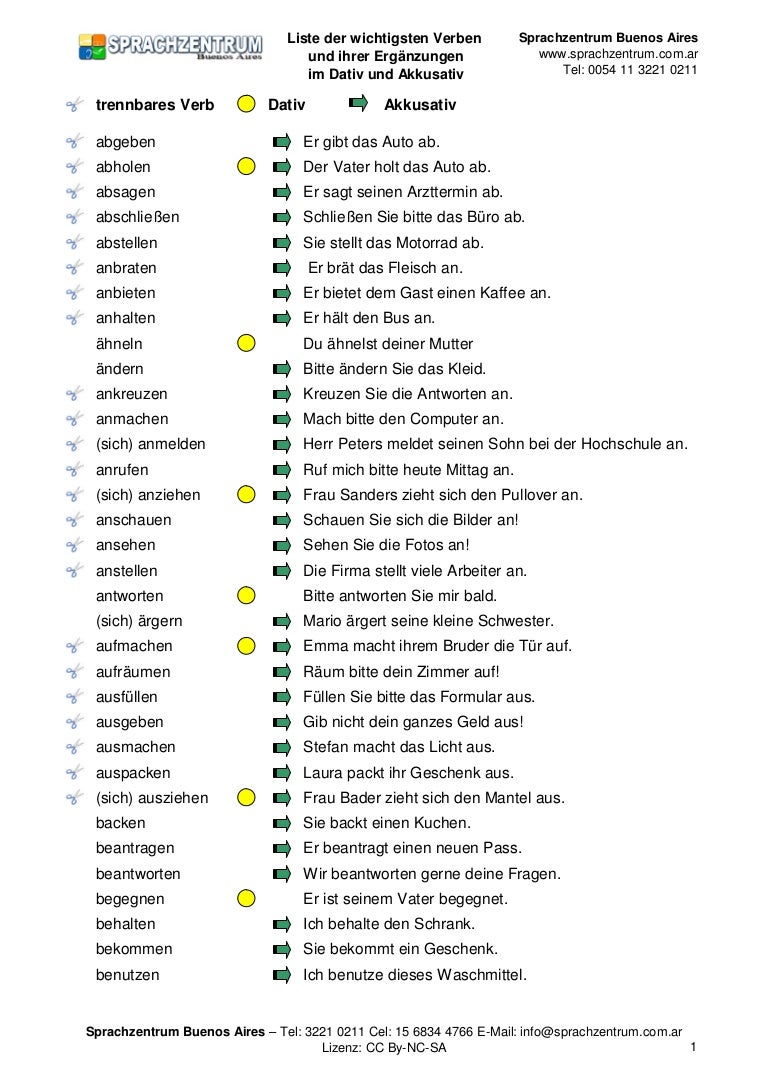11+ Fakten über Akkusativ Und Dativ! Pois é, pois é, pois é.
Akkusativ Und Dativ | Ich gehe auf die straße. Zu diesen verben sind unter anderem gehören, zuhören oder helfen. (i'm in the city.) in simple, if the sentence is an answer to the question pronoun wohin (where to), the preposition in it would take the accusative case and if the sentence is an answer to the question pronoun wo (where), the preposition in it would. Wie ihr die fälle aber besser bestimmen könnt, das erkläre ich euch in diesem video!kapi. En allemand, on compte quatre cas (nominativ, genitiv, dativ, akkusativ ou en français :
(i'm in the city.) in simple, if the sentence is an answer to the question pronoun wohin (where to), the preposition in it would take the accusative case and if the sentence is an answer to the question pronoun wo (where), the preposition in it would. Some stats about the german cases and the grammar behind those ver. Genitiv, dativ und akkusativ zu erkennen, ist für deutschlernende oft nicht so einfach. Uma delas é a declinação de artigos, adjetivos, pronomes e, até, substantivos masculinos. The subject of a sentence is the person or thing that is doing the verb.

Der hund beißt den mann. Personalpronomen im nominativ, akkusativ und dativ. Wenn wechselpräpositionen präpositionalgruppen einleiten, die lokale angaben sind, ist es für die bestimmung des kasus entscheidend, ob das umschriebene geschehen zielgerichtet (d.h. Without the cases, heaps of confusion could be caused. Abtrocknen + a er trocknet seinen teller ab. New learners often confuse the accusative and dative cases in german. Akkusativ und dativ (accusative and dative) präpositionen (prepositions) that can be used in dativ or akkusativ. Bestimmte verben und präpositionen im deutschen verlangen einen bestimmten fall. 7 major differences between english and german grammar. Der hauptunterschied zwischen akkusativ und dativ ist, worauf sie sich in einem satz konzentrieren. I gave you the book, it would be the book. Nominative case nominative is the case of the subject of the sentence, that is, the case of the noun performing the action of the verb. Mit der folgenden übersicht lernst du ganz schnell, diese fälle zu unterscheiden.
If the noun is the subject in the sentence it will follow the nominativ case. Comecemos devagar, com os artigos e pronomes pessoais. Nominativ, akkusativ and dativ are but different forms of an article depending on the status of the noun in the sentence and irrespective of the gender. In this video you will learn how and when to use verbs with accusative and dative objects. The example below illustrates why:

Der nominativ bezieht sich auf das thema des satzes. Personalpronomen im nominativ, akkusativ und dativ. Nominativ, akkusativ und dativ what is the subject of a sentence? In the example den mann is the noun in the accusative case. That's also the name of a famous goethe poem (he wrote it when he was a student of german as a native language) dative receives. Ví dụ như động từ geben (đưa cho). The subject of a sentence is the person or thing that is doing the verb. I gave you the book, it would be the book. Die zwei fälle akkusativ und dativ sind oft schwer zu unterscheiden. In englischer sprache gibt es hauptsächlich vier fälle. Without the cases, heaps of confusion could be caused. New learners often confuse the accusative and dative cases in german. Nhóm động từ đi với cả dativ lẫn akkusativ (verben mit dativ und akkusativ) nhóm động từ cuối cùng chúng ta nhắc đến ở đây chính là những động từ đòi hỏi cả 2 tân ngữ dativ và akkusativ trong câu, nếu không thì câu sẽ trở nên không đầy đủ và vô nghĩa.
Wenn wechselpräpositionen präpositionalgruppen einleiten, die lokale angaben sind, ist es für die bestimmung des kasus entscheidend, ob das umschriebene geschehen zielgerichtet (d.h. If the noun is the subject in the sentence it will follow the nominativ case. (⇒ ist der empfänger vom akkusativ) Personalpronomen im nominativ, akkusativ und dativ. Die meisten verben verlangen ein akkusativobjekt.

Deutsch als fremdsprache (daf) grade/level: Wenn wechselpräpositionen präpositionalgruppen einleiten, die lokale angaben sind, ist es für die bestimmung des kasus entscheidend, ob das umschriebene geschehen zielgerichtet (d.h. Pois é, pois é, pois é. Some verbs take a direct object in the dative case instead of the normal accusative case. Die meisten verben verlangen ein akkusativobjekt. In englischer sprache gibt es hauptsächlich vier fälle. Ich gehe auf die straße. In diesem fall steht das direkte objekt im dativ, womit sich obige regel nicht mehr anwenden lässt. Nhóm động từ đi với cả dativ lẫn akkusativ (verben mit dativ und akkusativ) nhóm động từ cuối cùng chúng ta nhắc đến ở đây chính là những động từ đòi hỏi cả 2 tân ngữ dativ và akkusativ trong câu, nếu không thì câu sẽ trở nên không đầy đủ và vô nghĩa. Let's have a look at german. For many of these verbs, the dative complement is not necessary. In this video you will learn how and when to use verbs with accusative and dative objects. Nominativ, akkusativ und dativ what is the subject of a sentence?
Akkusativ Und Dativ: Zu diesen verben sind unter anderem gehören, zuhören oder helfen.

Posting Komentar
Posting Komentar